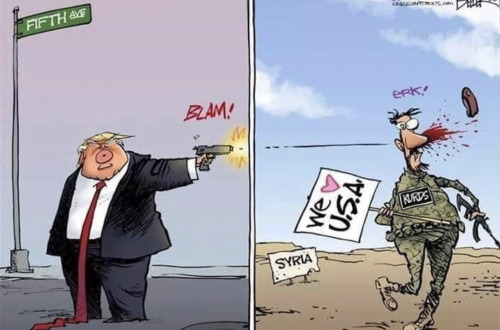I’ve just finished catching up with the latest episodes of HBO’s hugely successful fantasy series based on the novels of G. R. R. Martin. It’s completely compelling, and this description of the show by Rupert Myers is extremely unfair.
GoT is a culturally and artistically vacuous banquet of sex, violence, corruption, lies, and thuggery. It’s a soft porn Lord of the Rings which has creeped into pseudo-respectability for the sympathetic portrayal of a well-hung nymphomaniac dwarf.
However I think Myers is right to question responses to the rape of Sansa on her wedding night to the grotesque Ramsay Bolton. I did not find it a ‘gratuitous’ scene, as some have claimed, though it was certainly brutal, and the fact that another character was forced to watch the rape made it still more uncomfortable viewing.
Joanna Robinson commented:
“It undercuts all the agency that’s been growing in Sansa since the end of last season … did it really have to be rape that brought her low? Is that really the only horror Game of Thrones can imagine visiting on its female characters?”
Sansa has gone through a good deal already – such as being forced to watch the beheading of her father at the order of her psychopathic fiance. It doesn’t seem adequate to say that she is ‘brought low’ by her rape. She demonstrates forethought and resolve in the remainder of the series.
There have been many episodes of grotesque violence in Game of Thrones. The scene where Theon Greyjoy was tortured by Ramsay Bolton was much more prolonged than the rape of Sansa. Later he was castrated by Ramsay in yet another lengthy and sadistic scene. In this article about sexual violence in GoT no mention is made of Theon’s castration. Admittedly he is not a nice character, but neither is Cersei Lannister and that didn’t stop the outrage from viewers when she too was raped.
I’d been unable to avoid learning that Sansa Stark was raped, so was prepared for the scene. However I was unprepared for another horrible act of violence, the death of young Shireen, burned alive as a sacrifice to the gods on the orders of of her own father. Although there were plenty of hints this might happen, I was expecting a last minute reprieve. This scene, depicting the agonising death of a sensitive, intelligent little girl while her mother struggles to break free in order to rescue her, seemed to make comparatively little impact at the time. There was certainly some shock and outrage, but not to the same degree as with Sansa’s rape.
This blogger had a similar reaction:
I don’t understand why so many people were outraged with the rape scene between Ramsay and Sansa and I have barely heard a peep about what Stannis did to his daughter. I remember people on social media vowing to never watch the show again and going on and on about it. But seriously people, how do you not find a man burning his daughter alive to be more cruel and terrible than rape? I know I’m going down a slippery slope, but you all get where I’m going. That was one of the hardest scenes to watch/hear.
Someone answered, rather desperately:
Stannis did it to win the throne. Leaders do awful things in war, it’s in no way justified but it’s understandable. Also he clearly felt some remorse.
She continued:
As a non parent female, I find rape the worst possible thing that could happen to me and probably that’s the same for most females. Though neither made me want to stop watching.
Here, similarly, Charlotte Runcie observes that the death of Shireen was a less bleak moment than the rape of Sansa.
The moment that her mother dropped to the ground and emitted a low moan of despair, far too late to save her, was almost as bleak as Sansa’s rape earlier in the season.
There is an odd (though clearly unintended) parallel between this suggestion that rape, a terrible violent crime, is the very worst thing that can happen to a woman and the decidedly unfeminist idea that a woman’s most precious possession is her chastity – that death is preferable to dishonour.


